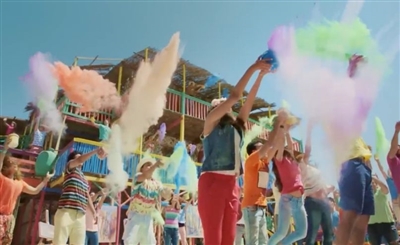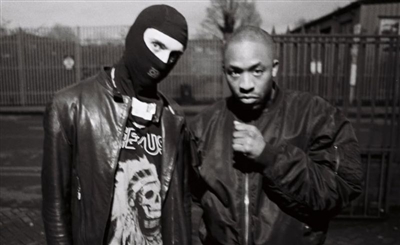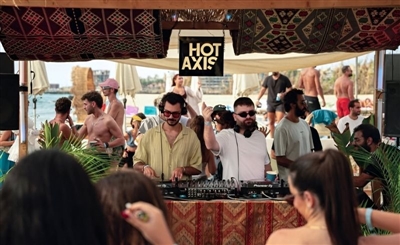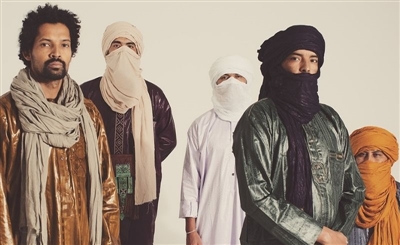Hassan Abou Alam: In Conversation with One of Egypt’s Most Accomplished DJs and Producers
Despite sill being just 26 years of age, Hassan Abou Alam has been a mainstay of Egypt's underground scene - in short he's seen a lot. In this intimate interview, SceneNoise's Yaseen El Azzouni picks the mind of one of the the Egyptian scene's very best.
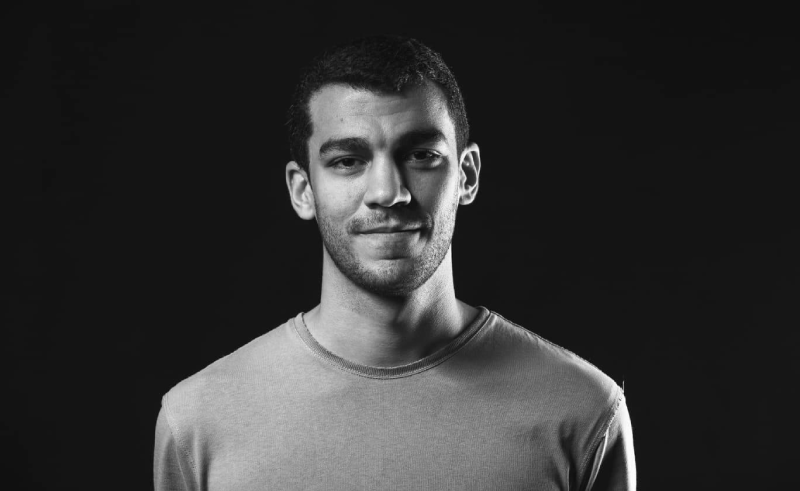
Despite
his young age, Hassan Abou Alam has been a mainstay of the Egyptian underground
music scene since the long-past days of VENT and beyond. Though he’s far from
being the most outspoken member of the scene, the 26-year-old producer/DJ has
slowly been racking up accolades both at home and abroad. Among these include
an unbroken five-year stint at SANDBOX Festival, a brief feature on VICE, as
well as a peak-hours set at Berlin’s Renate, alongside such names as Bradley
Zero and Perlon’s San Proper.
With
his latest release T44 (on Violet’s NAIVETY sub label) topping the Bandcamp
sales charts, I decided to reach out to Hassan, who’s escaped to the Egyptian
coast for some much-needed downtime amidst the hysteria of the COVID-19
outbreak.
Yaseen:
There’s been quite a bit of good feedback on T44 recently. Has seeing that kind
of reception had an effect on you?
Hassan:
Of course, it’s amazing. Feels good.
<iframe width="100%" height="300" scrolling="no" frameborder="no" allow="autoplay" src="https://w.soundcloud.com/player/?url=https%3A//api.soundcloud.com/playlists/975878308&color=%23ff5500&auto_play=false&hide_related=false&show_comments=true&show_user=true&show_reposts=false&show_teaser=true&visual=true"></iframe>
Y: Did meeting/playing alongside Violet at Fractal incentivise you to reach out with music?
H:
I just got in touch after the show, and decided to send her two demos. She
liked them, and released them on her sub label, Naivety. I don’t normally send
people my music, but she was really nice and I felt comfortable doing so.
Y:
Does playing out your tracks live affect how they develop? I imagine hearing it
in a club setting must be very different than at home.
H: Yeah it changes everything. That’s why I love it, because you also come up with new ideas. Sometimes I’ll do something live on the Digitakt and say “That sounds good,” know what I mean? Sometimes I won’t be able to repeat what I did [live]. Playing live encourages production, it encourages you to enhance the track, make it better.
Y:
Especially in regards to mixing and mastering, it makes a difference hearing it
on a system and realising “this doesn’t thump the way I want it to,” then going
back and fixing that.
H:
Of course, yeah. But I don’t know how to master, to be very honest. No idea.
Shiha [veteran Egyptian DJ/producer] taught me how to mix very well, he saved
my life. The way he mixes - and the way he taught me to mix - enhanced my
creative ideas in general. Having a good mix makes space for better ideas in
music. He hooked me up, he taught me how to mix properly and I’m very grateful
for that, it’s an awesome gift.
Y:
I feel like him and the EPIC101 crew have taken on the role of teachers,
especially in terms of the technical aspects of music production.
H:
They’re amazing. I want to give them a shoutout, Hussein [El Sherbini] and
Shiha, they’re doing it right.
Y:
Do you feel a generational gap between you and them?
H:
Hussein and Shiha are way more technically advanced than me. These guys know
shit that I don’t. You never stop learning. I can meet a kid who produces in a
different way and learn from them. Someone’s always going to impart wisdom, no
matter how old you get and no matter how far ahead you think you are. I believe
there’s always space to learn.
Y:
So, what’s something you’ve recently learned?
H:
Background noise and attention to detail are everything, definitely.
Y:
Some people say mixing/mastering doesn’t really affect how good a track is -
how do you feel about that?
H:
I don’t know about mastering, but mixing makes a huge difference. That’s what I
learned from Shiha – it plays a very big role in a track. If it’s a shit mix, it’s
a shit mix, know what I mean? There’s a lot of music that I listen to that
makes me say “If this sound was just a bit better, it would be a better track.”
Mixing also varies from person to person; I like to add a bit of distorted
sounds - I don’t like to have a very ‘clean’ mix. But it all depends on what
you like in a mix. A clean mix and a dirty mix both will sound great. Mixing is
a huge part of making music.
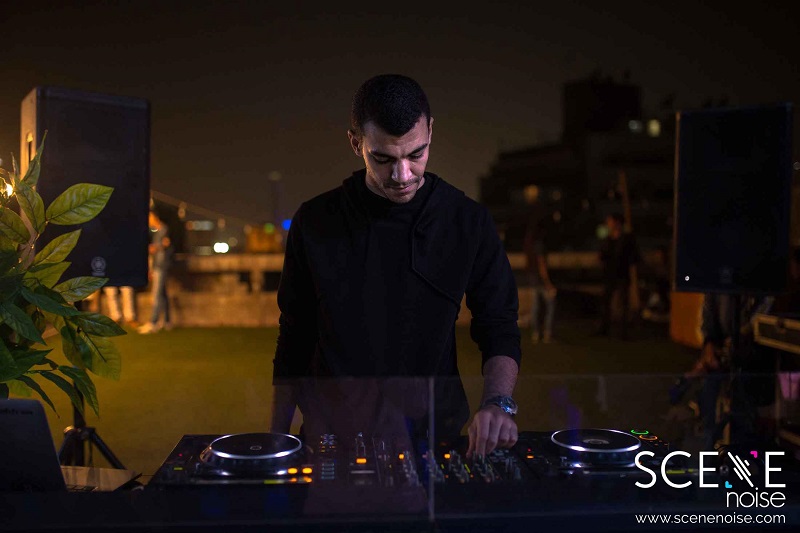
Y: In your view, how has the scene (in Egypt) changed over the past few years.
H:
Look, I really don’t know where we are currently, I’m confused about the scene
nowadays. Very confusing, I don’t know what is what, and I don’t know what is
happening anymore. I play from time to time, but I’m not as much a part of it
as I was back then. There are new kids coming every year, and I feel like I’ve
gotten old.
Y:
Since everything has shifted online these days, how do you feel about social
media?
H:
It’s not about social media for me at all. I’m just making music and I want to
share it with the world. If someone wants to listen to it or not, it’s up to
them.
Y:
Do you feel like social media is becoming more important regarding music in
Egypt?
H:
Apparently it is, yeah. But I’m not really good at that to be honest. I’m like
an introvert, it’s not my thing. I’m trying to work on that, actually. I am
against [social media], it should be about the music, nothing else. I’m not
going to post pictures of my breakfast and be like “Just had breakfast.” That’s
not me, it’s not my thing. I don’t want to stop being me.
Y:
Is it difficult to not play the ‘social media game’?
H:
I promote my events and all of that, but I can’t keep posting every day, it’s
not who I am. I’m not against it, but I’m not good at it. I try to do it as
often as I can. I want to be good at it, believe me, that would be great for my
music.
Y:
Is it difficult putting the creative process, or your everyday life, online?
H:
I feel like it should be about the music more than anything else, but I know
that I need to work on it. Because that’s the world we live in, know what I
mean? That’s what’s happening.
Y:
Was there a time when this was not the case?
H:
Yeah, it used to be just a Facebook post, “playing tonight at ‘x’,” but that
was it, I guess. I know I need to work on how I promote myself. I’m not going
to start posting pictures of my breakfast, but I need to start being more
active on social media. I’ve seen people doing it in a healthy way, I’m going
to try and do that.
Y:
It seems like everything is on social media in Egypt, every gig I’ve been to
just feels like a sea of photography.
H:
Exactly, exactly. I feel like life isn’t reality anymore. I feel like social
media is reality. Today on the street, everyone is really into their phones,
it’s insane. People don’t connect as human beings - in reality - anymore.
Everyone is very focused on their phones, it’s like brainwashing.
Y:
That’s the business model.
H:
Yeah, it’s really sad. But I’m a part of it as well – the first thing I do is
open Facebook or Instagram, it’s becoming a habit.
Y:
Do you feel like now you have to market yourself to the local audience?
H:
I do promote, just not as much as I should.
Y:
I feel like access is a big issue for this younger generation. It’s hard not to
look at the line-ups and see the same names, where does new talent fit into
that?
H:
I like what SceneNoise is doing with ‘Fresh Meat’ and it’s really good. They’re
promoting people who have talent but aren’t at all well-known or on the radar.
Y:
It’s clear that there’s an interest in adding newer talent to the ‘pool’ again.
It’s like the community vibe at VENT, back when that was a thing.
H:
Those were the best times. I don’t think we’re going to get that back. I highly
doubt it. I went out recently and felt completely disconnected, I couldn’t
handle it, it was too intense. I think the last time I went out in Cairo and
heard music that I liked was at VENT.
Y:
I feel like it would be possible with more spaces run by musicians rather than
promoters. It seems like a lot of very key people from that era took a step back
and decided that they don’t want to deal with the scene anymore. Maybe it was
just luck, but having Asem Tag and ZULI running VENT at that time was really
great.
H:
Thank god we were there for that, man.
Y:
I remember Bradley Zero’s set, with Hussein El Sherbini upstairs controlling
the visuals. That night stuck with me a lot more than most recent gigs.
H:
My favorite night was Opal Tapes, they were playing a showcase. It was a really
great day, honestly.
Y:
That night, or Ben UFO’s night, it wasn’t like a ‘hyped’ thing. It wasn’t like
that was the cool thing to do for all of Cairo.
H:
VENT was way ahead of its time.
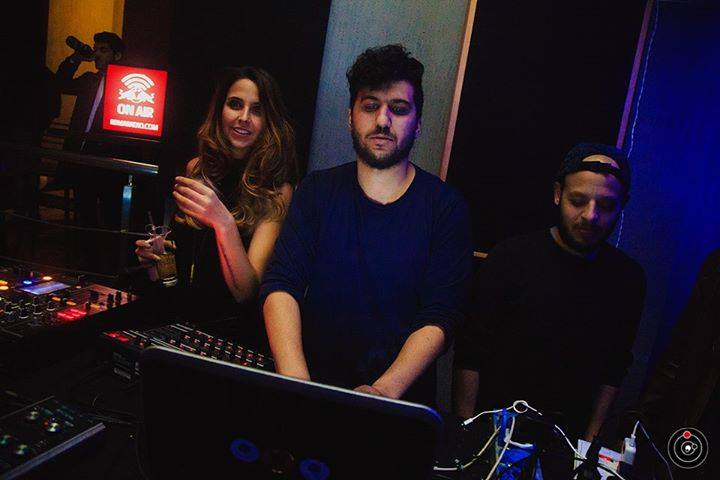 Bosaina, Asem Tag and ZULI at VENT (Photo courtesy of Arnold Fuad for Resident Advisor)
Bosaina, Asem Tag and ZULI at VENT (Photo courtesy of Arnold Fuad for Resident Advisor)
H: The problem in Egypt is when people go out to listen to music, they don’t come out for the locals as well. They come only for the international act. If I’m playing with someone huge, no one is there to listen to me, they’re there to see the headliner. At the same time, I feel like a lot [of foreign musicians] are coming [to Egypt], and I think it’s good. It’s great, and we’ve started to go in a diverse direction, but it’s not quite diverse enough. Back in the day, it used to be deep house only, now we’ve got deep house and a few other genres. We’re stepping out of it.
Y:
The Egyptian minimal wave?
H:
Truly, I’m tired of minimal. For the first time I have no idea where we’re
going to go in terms of the scene. I feel like, for experimentation and that
kind of stuff, it’s still early, it will take a while to reach.
Y:
Did you feel that you had more freedom to play experimental music at the show
at Renate?
H:
I played a straight up 4/4 techno set. I was in the black room, my set was
5AM-9AM. I think that was the only thing I could play (laughs), it was intense.
Y:
Those are good hours. Do you feel like as a Middle Eastern DJ going to Berlin,
people had an expectation about what you were going to play?
H:
That didn’t cross my mind.
Y:
It’s good to not carry that expectation.
H:
I was going to give them my best regardless of anything. It went very well,
thank God.
Y:
Is making a living in music is something that’s possible now in Egypt, or at
least more than it used to be?
H:
I guess. Full time, I don’t think you can rely on that to feed a family, it
depends. It can be quite unreliable; a month could pass without you getting any
gigs. It’s a bit unreliable, unless you’re a touring musician or DJ. But in
Egypt, to completely rely on that, you could maybe survive on your own. But if
you’re feeding a family, there’s no way.
Y:
The infrastructure just isn’t there yet.
H:
Yeah, definitely. Imagine if [people] don’t like your sound anymore. What would
you do if your sound becomes outdated for some reason? It happens all the time,
people change their minds all the time. When I was younger, I really liked
progressive house, now I can’t stand it. People develop tastes, and they move
from genre to genre. The world is always changing. It’s very risky and it’s not
very reliable.
Y:
There’s still only a handful of venues in Cairo, you could conceivably play all
of them in a couple weeks.
H:
In a year you could close out the whole country, maybe in less than a year.
It’s not smart to rely on that only.
Y:
Closing question; what can we expect from Hassan Abou Alam over these coming
interesting months? Any releases in the future?
H: I guess we're going to find out together
(laughs). No plans. Going with the flow, as always.
Hassan
later indicated he has an upcoming track slated for release later this month.
Follow Hassan Abou Alam on Soundcloud, Instagram and Facebook.
- Previous Article test list 1 noise 2024-03-13
- Next Article 23 Must-Watch Middle Eastern Music Documentaries
Trending This Month
-
Jan 29, 2026



